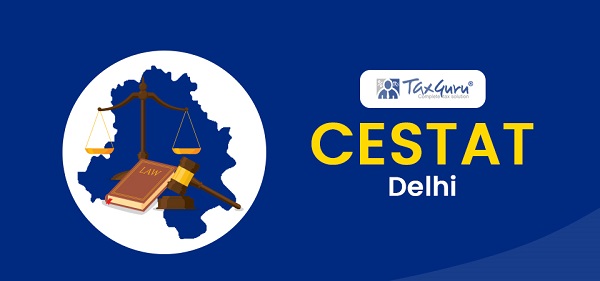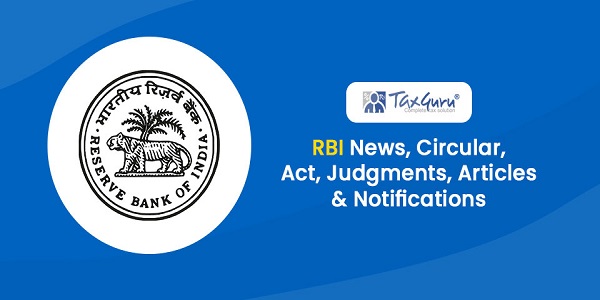Assessee not liable to pay interest when GST amount deposited within prescribed time period but returns Form GSTR-3B were filed belatedly post due-date
Introduction: In a significant decision, the Hon’ble Madras High Court, in the case of M/s. Eicher Motor Ltd. v. Superintendent GST and Central Excise and Ors. [W.P. No. 16886 of 2023 dated January 23, 2024], clarified the issue of interest liability on GST payments. The court held that an assessee is not liable to pay interest when the GST amount is deposited within the prescribed time period, even if returns in Form GSTR-3B are filed belatedly post the due date.
The Hon’ble Madras High Court set aside the order and recovery notice and allowed the writ petition, thereby holding that, Assessee is not liable to pay the interest when the amount of GST collected by the Assessee is deposited within the time period but returns Form GSTR-3B were filed belatedly post due-date.
Facts:
M/s. Eicher Motors (“the Petitioner”) is a manufacturer of motorcycles. The Petitioner paid the required amount of GST by using Input Tax Credit (“ITC”) and the remaining amount of tax through cash. At the time of introduction of GST, the Petitioner had accumulated balance of CENVAT Credit which was to be transitioned into GST Regime for which Form GST TRAN 1 was filed, though, at later stage due to a technical glitch on GST Portal. However, the credit sought to be transitioned was not available on furnishing of Form GST TRAN-1. As the amount of Transitional Credit could not reflect in the Electronic Credit Ledger, the Petitioner was not in a position to file monthly return under Form GSTR-3B for the month of July, 2017, causing delay in filing of Form GSTR-3B for subsequent months from August, 2017 to December, 2017. The Petitioner for the period of July, 2017 to December, 2017 (“the Period”) deposited the tax amount in the Electronic Cash Ledger into the Government account within the due date for each month. The Accumulated CENVAT Credit was also not transitioned, due to which the Petitioner was constrained to file revised Form GST TRAN-1 after which the transitioned credit was reflected in the Petitioner Electronic Credit Ledger, enabling the Petitioner to file return for the month of July, 2017 and thereby permitting the Petitioner to file the returns for the subsequent months as well. Therefore, the Petitioner filed the required returns for the said period.
However, the Revenue Department (“the Respondent”) issued a Recovery Notice (“the Impugned Notice”) against the Petitioner, demanding the payment of interest for alleged belated payment of GST for the said period. Subsequently, the Recovery proceedings were not withdrawn by the Respondent, and the Petitioner challenged the Impugned Notice by way of filing writ petition before the Hon’ble High Court. The Hon’ble High Court vide its order granted stay on recovery proceedings but subject to payment of certain percentage of interest. Aggrieved by the interim order, the Petitioner filed a writ appeal before the Hon’ble High Court wherein the Court directed the Respondent to consider the Petitioner representation and pass the required orders.
Pursuant to the orders passed, the Respondent passed order dated July 12, 2023 (“the Impugned Order”) thereby confirming the demand of interest against the Petitioner. Aggrieved by the Impugned Notice and Order passed, the Petitioner filed a writ petition before the Hon’ble Madras High Court.
Issue:
Whether the Petitioner is liable to pay interest on GST amount which was routinely deposited with the Government but returns Form GSTR-3B were filed belatedly?
Held:
The Hon’ble Madras High Court in the case of W.P. No. 22013 of 2023 held as under:
- Noted that, the judgement of Hon’ble Jharkhand High Court in the case of M/s RSB Transmission Indian Limited v. Union of India and Ors. [W.P (T) No. 23 of 2022 dated October 18, 2022] and the judgement of Hon’ble Telangana High Court in the case of M/s. Megha Engineering and Infrastructure Limited v. Commissioner of Central Tax, Hyderabad [Writ Petition No. 44517 of 2018 dated April 18, 2019] are not in consonance with the provisions of the Central Goods and Service Tax Act, 2017 (“the CGST Act”) and the Central Goods and Service Tax Rules, 2017 (“the CGST Rules”), wherein the Hon’ble High Court in the said judgements held that any deposit in the Electronic Cash Ledger prior to the due date of filing GSTR-3B return does not amount to discharging tax liability.
- Further Noted that, as per Section 39(7) of the CGST Act, the credit to the account of government would always occur not later than the last date for filing the monthly returns.
- Further Noted that, once the amount is paid by generating GST PMT-06, the amount will be initially credited to the account of the government immediately upon deposit, thereby the tax liability of registered person would be discharged to the extent of amount deposited with the government. As per explanation (a) to Section 49(11) of the CGST Act, the amount of tax deposited, would deemed to be credited in the Electronic Cash Ledger.
- Further Noted that, the tax liability of registered person would be discharged from the date when the amount was credited to the account of the government. Also, as per Section 50(1) of the CGST Act, registered person is liable to pay the interest only for the delayed period i.e. when there is any default in payment of GST subsequent to the date of filing monthly returns i.e. on or before 20th day of every succeeding month.
- Relying upon the judgment of Hon’ble Gujarat High Court in the case of M/s Vishnu Aroma Pouching Pvt. Ltd. v. Union of India and Ors. [R/Special Civil Application No. 5629 of 2019 dated November 14, 2019] opined that, the tax amount has already been credited in the Government within the prescribed time limit i.e., before the due date, the issue of payment of interest would not arise.
- Held that, the Impugned Notice and Impugned Order is liable to be quashed. Hence, the writ petition is allowed.
Conclusion: The Madras High Court’s ruling in Eicher Motor Ltd. provides clarity on the interest liability of taxpayers in cases where GST amounts are deposited within the prescribed time, even if the filing of GSTR-3B returns is delayed. The decision aligns with the statutory provisions and emphasizes that the tax liability is deemed discharged when the amount is credited to the government’s account within the specified timeframe.
In conclusion, the detailed analysis of the court’s findings sheds light on the crucial aspect of interest liability under GST, offering insights for taxpayers and professionals dealing with GST compliance. This case serves as a precedent for understanding the intricacies of GST regulations related to the timing of depositing GST amounts and filing returns.
*****
Author can be reached at info@a2ztaxcorp.com)





























